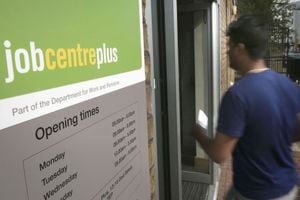Shropshire shares rise in UK jobless figures
Unemployment rose again in Shropshire – as a warning was given about the impact on jobs in our region of the UK falling into a no-deal Brexit.

The number out of work in the West Midlands region, including in Shropshire, was up 16,000 on the quarter to 150,000.
Employment across the West Midlands was also down from 2.78 million the previous quarter to 2.75 million, but nationally record numbers of people are in work and average earnings are at their highest level for a decade.
UK employment increased by 79,000 in the three months to 32.4 million, the highest since records began in 1971.
Unemployment increased by 20,000 to 1.38 million after a big increase in the number of men out of work, although the total is still 49,000 lower than a year ago, the Office for National Statistics said. The UK's jobless rate is now 4.1 per cent, 0.2 per cent lower than a year ago.
Nationally numbers claiming unemployment benefits, including Universal Credit and Jobseeker's Allowance, last month were 962,735 – a rate of 2.3 per cent.
For the West Midlands the rate is 2.9 per cent with numbers claiming up 790 to 106,435.
Shropshire saw the claimant count rise by 125 to 2,955, or 1.6 per cent of the working population.
Telford and Wrekin's claimant count increased by 30 to 1,860, or 1.7 per cent of the working population.
The figure in Powys fell by 15 to 670, or 0.9 per cent of the population.
Part of the reason for the rise in claimant counts over recent months has been the transfer of many people across to the new Universal Credit benefit system.
The ONS reported that average earnings increased by 3.3 per cent in the year to October, up from 3.1 per cent the previous month.
It was the highest figure since 2008, and is more than the latest inflation rate of 2.4 per cent.
The ONS said average weekly earnings, adjusted for price inflation, increased by 1.1 per cent, including bonuses, compared with a year ago.
The increase in both unemployment and employment is explained by the UK's rising population, and fewer people classed as economically inactive, which includes those on long-term sick leave, students, and people who have given up looking for a job.
Employment Minister Alok Sharma said: "Today's statistics show the enduring strength of our jobs market, with wages outpacing inflation for the ninth month in a row and employment at a record high.
"This is benefiting people across the country, with almost 400,000 more people in work in the last year, putting more money in the pockets of working families, and showing the UK remains a great place to invest and do business."





